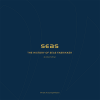Leprosy and Empire: A Medical and Cultural History
An innovative, interdisciplinary study of why leprosy, a disease with a very low level of infection, has repeatedly provoked revulsion and fear. Rod Edmond explores, in particular, how these reactions were refashioned in the modern colonial period. Beginning as a medical history, the book broadens into an examination of how Britain and its colonies responded to the believed spread of leprosy. Across the empire this involved isolating victims of the disease in ‘colonies’, often on offshore islands. Discussion of the segregation of lepers is then extended to analogous examples of this practice, which, it is argued, has been an essential part of the repertoire of colonialism in the modern period. The book also examines literary representations of leprosy in Romantic, Victorian and twentieth-century writing, and concludes with a discussion of traveller-writers such as R. L. Stevenson and Graham Greene who described and fictionalised their experience of staying in a leper colony.
- Forlag: Cambridge University Press
- Utgivelsesår: 2009
- Merknad: Manufactured on demand: supplied direct from the printer
- Kategori: Historie
- Lagerstatus: Ikke på lagerVarsle meg når denne kommer på lager
- Antall sider: 268
- ISBN: 9780521123129
- Innbinding: Heftet













